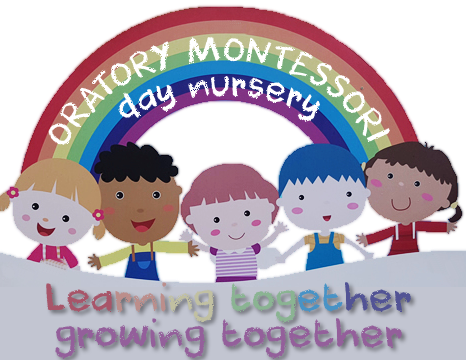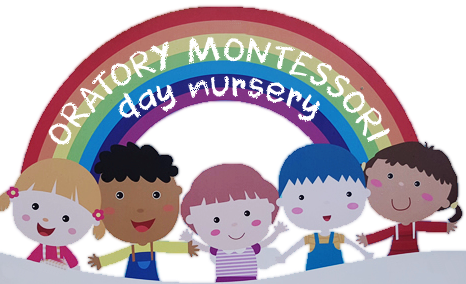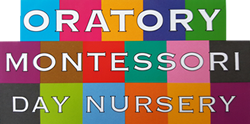Dr. Maria Montessori’s approach, almost a century ago, was to observe the child carefully in order to assess what his or her individual needs might be. She was also aware that children’s needs change as society itself changes. This insight highlights the importance for the educator in preparing and equipping our children for the future and not just for the world around them today.
Building upon the child’s intrinsic motivation to learn
 Another characteristic of the Montessori approach is that it places an emphasis on the development of the whole child. By the whole child we mean the intellectual, social, physical, emotional and spiritual aspects of their development. Whatever the priorities and different educational requirements of countries around the world might be, we need to prepare a balanced child for the twenty-first century. To do this, educators must look at and understand all aspects of the child’s development.
Another characteristic of the Montessori approach is that it places an emphasis on the development of the whole child. By the whole child we mean the intellectual, social, physical, emotional and spiritual aspects of their development. Whatever the priorities and different educational requirements of countries around the world might be, we need to prepare a balanced child for the twenty-first century. To do this, educators must look at and understand all aspects of the child’s development.
Developing the whole child
Bee-183x300Montessori showed us in a very special way that all children want to learn. The adult’s role is to prepare a suitable and structured environment with appropriate educational activities which can be selected by the children themselves. In this way children rapidly initiate their own learning – they learn to learn – they are never forced. Examples of the practical approach of the Montessori Method can be found in MATERIALS she designed
Montessori Curriculum
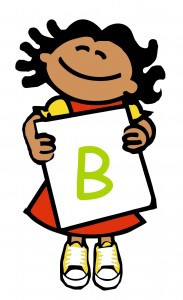 The learning material in our Montessori nursery is generally auto-didactic, that is self teaching and designed for individual work. Once auto-didactic materials have been introduced to a child at the appropriate time, he is able to work without the constant aid of his teachers. The auto-didactic Montessori materials are divided among four main fields of discovery. The teachers will be pleased to demonstrate the use of this equipment during your visit.
The learning material in our Montessori nursery is generally auto-didactic, that is self teaching and designed for individual work. Once auto-didactic materials have been introduced to a child at the appropriate time, he is able to work without the constant aid of his teachers. The auto-didactic Montessori materials are divided among four main fields of discovery. The teachers will be pleased to demonstrate the use of this equipment during your visit.
Montessori ‘structured
During this time, the children receive guidance from the teachers to develop their skills in Practical life, Sensorial (perception enhancement), Language and Mathematical exercises using the specially designed auto-didactic Montessori equipment.
Practical Life Activities
All our practical life exercises (pouring, buttoning, zipping, tying, cutting, setting tables) relate to the child’s everyday life and are designed to develop a feeling of responsibility, concentration, fine and large muscular co-ordination and movement, awareness of the environment and develop social skills.
Sensorial
Children use equipment carefully designed by Dr. Maria Montessori from natural materials to raise each child’s consciousness of a range of fine sensory distinctions. Each piece of our distinctive Montessori sensorial apparatus develops the application of one sense in a precise way, e.g. texture, weight, sound, smell, shape, size or colour. The teacher encourages children to give full attention to the five senses — to become more finely attuned to what they see, hear, touch, smell and taste.
Mathematics
As each child is ready, they are introduced to simple Montessori maths materials from which they touch, talk and experiment with the relevant mathematical concept. They proceed to understand particular concepts and qualities as size, weight, measurement, height and comparison to name just a few and then move on from concrete to the abstract.
Language and Literacy
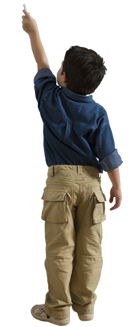 writing-boy xMaterials for intellectual development are gradually introduced when the children are ready. They are well made, attractive and interesting e.g. sandpaper letters will be used in introducing the child phonetically to the characters of the alphabet. These materials support the children’s learning and provide them with a challenge. They also help the children to develop skill and competence by proceeding to increasingly complex handwriting exercises that improve pencil control, and encourage problem solving through more demanding written English work and reading. Related activities include the use of flash cards, recognition of sound, drawing and colouring, joining dots and writing freehand.
writing-boy xMaterials for intellectual development are gradually introduced when the children are ready. They are well made, attractive and interesting e.g. sandpaper letters will be used in introducing the child phonetically to the characters of the alphabet. These materials support the children’s learning and provide them with a challenge. They also help the children to develop skill and competence by proceeding to increasingly complex handwriting exercises that improve pencil control, and encourage problem solving through more demanding written English work and reading. Related activities include the use of flash cards, recognition of sound, drawing and colouring, joining dots and writing freehand.
Circle Time
In Circle Time, children are regularly invited to identify the date, comment on the weather, express their feelings and share their news with the class. Circle Time builds confidence in communication and provides not only an excellent foundation for other social skills but also a daily practice for later preparatory school entrance examinations and interviews. Children are often invited to sing ‘good morning’ or action songs or rehearse safety procedures.
“Montessori is an attitude, not simply a teaching system, not just a technique; one must have great love and understanding of each individual child. Montessori is a spiritual attitude towards mankind and mankind begins with childhood”.
